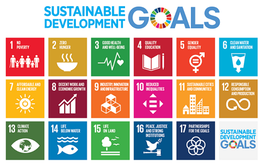
In 2023, mid-way to 2030, Belgium is to submit its 2nd voluntary national review (VNR) to the UN High-Level Political Forum in New York.
Belgium will present its efforts in achieving the Sustainable Development Goals (SDGs) as put forward in the 2030 agenda from 2015. A good opportunity for state and civil society actors to take stock and look at what is needed to move forward. The VNR will look at Belgium’s local, regional and national efforts, as well as its international cooperation on the SDGs.
Belgium will present its efforts in achieving the Sustainable Development Goals (SDGs) as put forward in the 2030 agenda from 2015. A good opportunity for state and civil society actors to take stock and look at what is needed to move forward. The VNR will look at Belgium’s local, regional and national efforts, as well as its international cooperation on the SDGs.
In the 2030 Agenda, clear goals are set to advance sexual and reproductive health worldwide. They include universal access to sexual and reproductive health services, including family planning, ending the HIV-epidemic, bringing down the number of women who die while giving birth, and ending sexual and gender-based violence.
Where do we stand mid-way to 2030?
Half of all pregnancies in the world are unintended, with 60% ending in safe or unsafe abortions.
257 million women in the world would like to prevent or delay pregnancy, but have no access to modern contraceptives.Only 56% of all women can make their own decisions about the use of sexual and reproductive health services. During the COVID-19 pandemic, sexual and gender-based violence increased, and countries reported interrupted treatment of people living with HIV. Climate change-induced emergencies hinder people’s access to health services and increase their risk to sexual and gender-based violence, including harmful traditional practices such as female genital mutilation and early marriage. These figures demonstrate the huge challenges in achieving the SDGs by 2030.
So how is Belgium doing?
Sensoa’s newly published ODA analysis showed an increase in bilateral reproductive health support, but warned for its temporary character, expecting decreased support in the years ahead. It found health sector support to be stagnating. Attention for the HIV-response is in steep decline and attention of SRHR in emergencies was found to be disappointingly low.
To turn the tide, Belgium should step up its efforts for a progressive SRHR agenda. It can do so through combined bilateral and multilateral support.
Where do we stand mid-way to 2030?
Half of all pregnancies in the world are unintended, with 60% ending in safe or unsafe abortions.
257 million women in the world would like to prevent or delay pregnancy, but have no access to modern contraceptives.Only 56% of all women can make their own decisions about the use of sexual and reproductive health services. During the COVID-19 pandemic, sexual and gender-based violence increased, and countries reported interrupted treatment of people living with HIV. Climate change-induced emergencies hinder people’s access to health services and increase their risk to sexual and gender-based violence, including harmful traditional practices such as female genital mutilation and early marriage. These figures demonstrate the huge challenges in achieving the SDGs by 2030.
So how is Belgium doing?
Sensoa’s newly published ODA analysis showed an increase in bilateral reproductive health support, but warned for its temporary character, expecting decreased support in the years ahead. It found health sector support to be stagnating. Attention for the HIV-response is in steep decline and attention of SRHR in emergencies was found to be disappointingly low.
To turn the tide, Belgium should step up its efforts for a progressive SRHR agenda. It can do so through combined bilateral and multilateral support.
- Belgium can invest in strengthening health systems in partner countries, integrating family planning and HIV prevention and treatment in primary health care, and including them in the coverage by health insurances.
- Belgium can help promote youth friendly services, and pay specific attention to people experiencing multiple types of discrimination.
- Belgium can encourage humanitarian actors to ensure attention for the SRHR needs of people faced with the impacts of climate change and other man-made crises.

 RSS Feed
RSS Feed